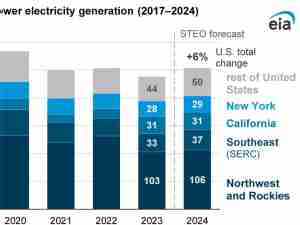The Russian state’s oil revenue came under further pressure as the average crude price the government uses to calculate its taxes dropped to the lowest in more than two years.
The country already had a record federal budget deficit in December as it spent heavily on the invasion of Ukraine while the price of oil and gas — the single-largest source of government revenue — declined. The main export price for Russian crude nearly halved in 2022 on a combination of a slowing global economy and waves of international sanctions in response to the war.
Urals crude, Russia’s key export blend, traded at $46.82 per barrel between mid-December and mid-January, according to data from the Finance Ministry published on Monday. That’s the lowest level since the monitoring period of mid-October to mid-November in 2020 during the height of the Covid-19 pandemic. The price will be used to calculate a variety of taxes on the Russian oil industry for the next month, including crude and oil-product export duties.
By imposing sanctions including import bans and a price cap on seaborne Russian oil shipments, Western countries aim to reduce the flow of petrodollars to the Kremlin while simultaneously keeping its exports robust. Declining Russian oil inventories and a growing crude production signal that the approach is at least partially working.
The Kremlin has been able to somewhat mitigate the negative fiscal impact of lower Urals prices. The Finance Ministry taxes crude producers based on a price that includes freight and insurance costs, meaning it is higher than the price exporters actually receive, according to Interfax.
The Urals price excluding of such costs, which has become the new market standard for Russian oil, has dropped to around $40 per barrel in the recent weeks, according to data provided by Argus Media.
Russia’s budget deficit this year is forecast at 2% of gross domestic product, roughly in line with the 2022 level. However, that estimate is based on an oil price of $70 a barrel. If Russian crude remains near current levels, revenues will fall short of the government’s target by about 2.4 trillion rubles, equivalent to about 1.6% of GDP, according to Alexander Isakov, economist at Bloomberg Economics.









